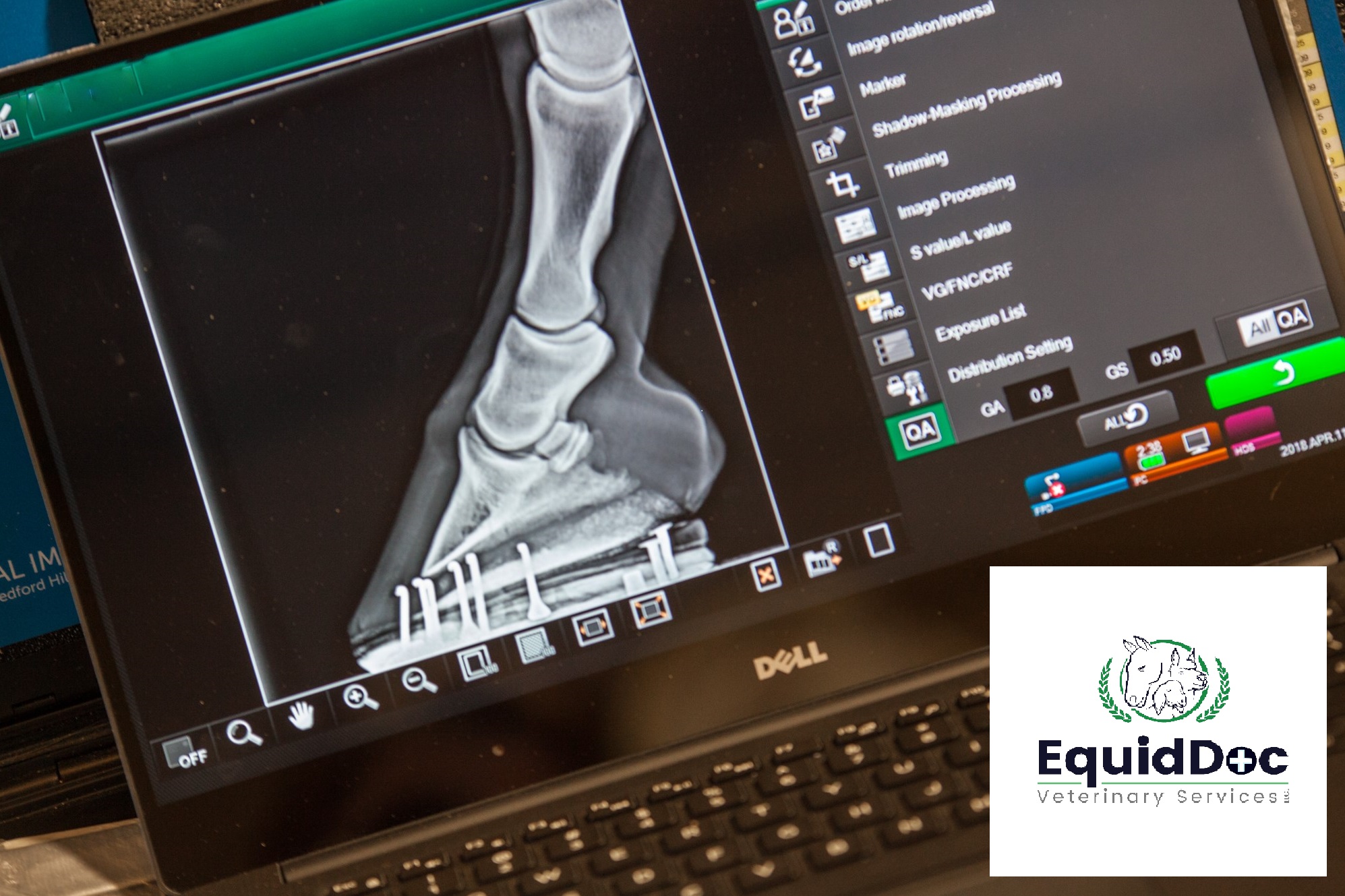Sports medicine, the treatment, and prevention of injuries related to exercise isn’t just for the competitive equine athlete, but also your occasional trail riding partner. No matter your chosen level of equestrian activity, your horse is prone to exercise-related injury, lameness, or poor performance. The most common ailment requiring treatment in the equine athlete is arthritis or joint inflammation. Osteoarthritis (OA) refers to the slow and progressive destruction of cartilage within a joint. As cartilage is damaged and destroyed it becomes mineralized and further exacerbates inflammation within the joint. OA is not just an old horse disease; it can affect any horse at any age. Some causes of OA are repeated athletic stress, poor conformation, joint instability, past trauma, or developmental conditions such as osteochondrosis leading to osteochondritis dissecans or OCD. Regardless of the cause, untreated OA will result in a hot, swollen, painful joint that will lay up your horse.
Classic signs of OA include heat, swelling due to increased joint fluid, lameness or pain, stiffness, bony bumps around the joint, or snap-crackle-pop noises coming from the joint. Some more mild signs may be a horse that is stiff walking out of the stall or at the beginning of work but after warming up looks more comfortable. If you notice these signs in your horse, a sports medicine examination is recommended. The examination includes palpation of your horse standing, a moving assessment, flexion tests, and anesthetic blocks as needed to locate the source of the pain. X-rays usually reveal OA unless in its earliest stages since only bone, not cartilage is visible on x-rays.
There is no cure for OA, so our treatment focuses on slowing the progression of cartilage destruction and maintaining comfort. For comfort, we routinely use non-steroidal anti-inflammatory drugs (NSAIDs) such as phenylbutazone (Bute) or firocoxib (Equioxx) given by mouth, or diclofenac (Surpass) applied topically. There are other pharmaceuticals such as intravenous hyaluronic acid (i.e. Legend) or intramuscular injection of polysulfated glycosaminoglycan (i.e. Adequan) that can help to support joint and cartilage health. Nutritional supplements that contain omega-3-fatty acids, glucosamine, chondroitin sulfate, MSM, and ASU may also be beneficial to joint health.

When the above therapies are not enough to maintain your horse’s comfort, intra-articular injections are performed (like a person getting a cortisone shot in their knee). The goal of intra-articular medication is to target the joint, or set of joints, causing your horse the most discomfort and delivering an anti-inflammatory (a steroid) and hyaluronic acid directly to the site. Joint injections are a surgical procedure that is performed on the farm but must be performed under sterile conditions. The type of steroid selected will depend upon the type of joint being injected. The frequency of injections can vary from 3 months to over a year, and largely depends upon what your horse needs to remain comfortable and happy in their work.
Whether your horse receives intra-articular medication or not, they will be prescribed a physical therapy or rehabilitation program. Consistent and continued low impact exercise is very helpful for promoting cartilage health. Specific exercises (such as walking over cavalettis) are recommended to help promote muscle development to provide joint support and stability. Weight loss is an incredibly important part of your horse’s physical therapy, as the less weight your horse carries, the less impact (and damage) the joint sustains. In addition to physical therapy, assessment of your horse’s shoeing and trim is beneficial for optimizing joint support and stability.
EquidDoc’s veterinarians are skilled in the diagnosis of osteoarthritis and can take x-rays on the farm with immediate results. We tailor treatment, including joint injections, and rehabilitation plans to meet your horse’s individual needs, factoring in their athletic ability & fitness, conformation, nutrition, age, and discipline.
With over 60% of lameness in horses due to osteoarthritis, contact EquidDoc mobile veterinary services to set up an evaluation for your stiff horse today, 508-885-4205, or office@equiddocvet.com. Have a great ride!

